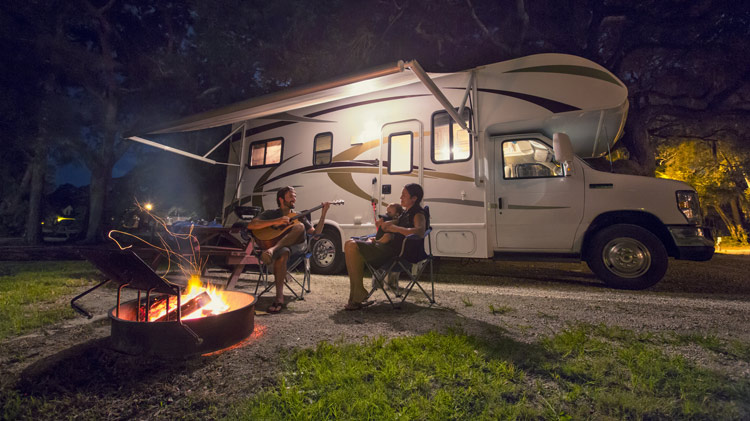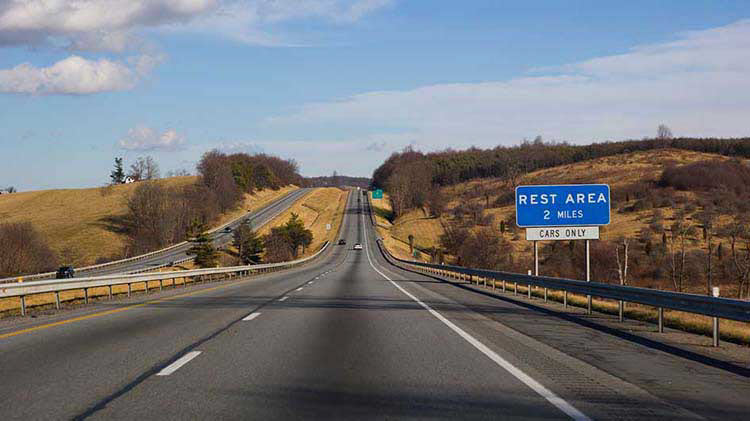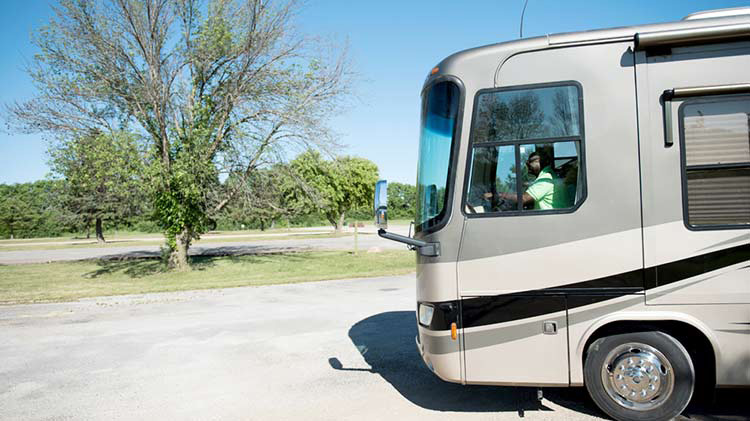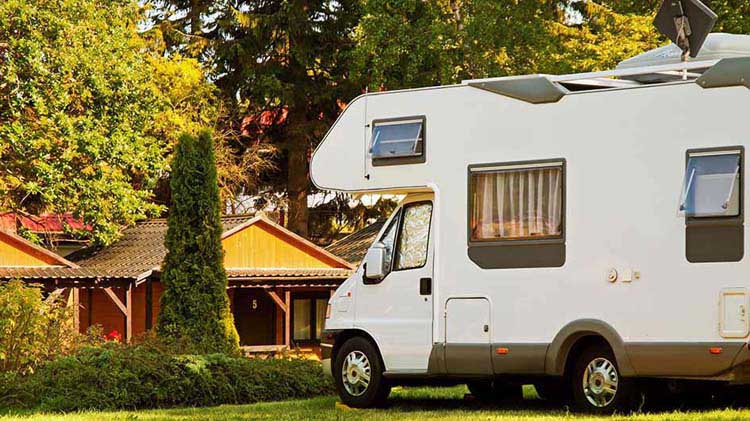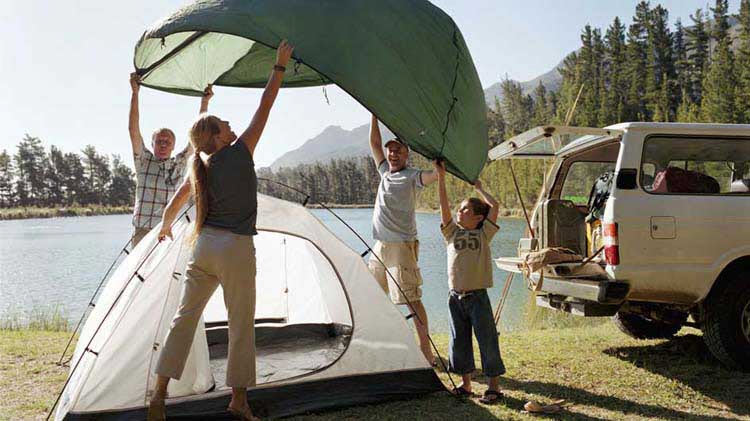What to know before buying an RV
Deciding which Recreational Vehicle (RV) is right for you can take some time, but understanding your options can help.
Here are a few things to consider along with your budget, your needs and your lifestyle.
What are the different types of RVs?
When it comes to RVs, there are many options and styles to pick from, but the two main types are motorhomes and towable RVs. If you will be towing an RV, check your vehicle's tow capacity to determine which type will work for your family. You may need to budget for a truck or SUV that can tow your RV, if you don't already have one.
Have an agent contact me
with a quote
Motorhomes
They have their own engine and transmission, so you don’t need an additional vehicle to pull them. You can choose from gas or diesel engines. Some types include:
- Class A motorhome - Luxurious and spacious, these are designed to accommodate many people and for long distance trips.
- Class B motorhome - Also called camper vans. They are smaller and compact, but offer amenities like bathrooms, kitchens and bedrooms.
- Class C motorhome - They have storage/sleeping areas above the main cab. They also have amenities and are smaller than class A motorhomes, which allows for better gas mileage.
Towable RVs
These type of RVs are towed by your vehicle. There are many types and sizes to choose from depending on your needs. Some are:
- Travel trailers - These are a popular option among RV travelers as they have different styles, sizes and features to choose from. Many of them are easy to detach from the hitch and set up at campgrounds.
- Fifth wheel campers - These are the largest towable RV type and need a large pick up with a fifth wheel hitch to tow it. Due to their size, they have extra living space, making it ideal for large families or extended stays.
- Sport utility RVs - Usually a type of fifth wheel designed to accommodate outdoor equipment like motorcycles, ATVs, kayaks, snowmobiles and golf carts. These RVs have large cargo and garage areas.
- Pop-up campers: These type of RVs provide mainly sleeping space. They are light weight and can be towed by many types of passenger vehicles. This is a popular choice for families with young kids that enjoy camping.
What RV features are important?
Researching might help you narrow down your choices. There are various resources and sites that can help you. A few things to consider when making your decision are:
- Space and features - How will you use the RV?
- Do you want it mostly for shorter trips?
- Do you intend to use it for long-term living?
- Who will be traveling with you?
- Will your pets be joining you?
- How many people will utilize the RV?
- Floor plans - RVs and motorhomes come in a variety of floor plans. Some have separate bedrooms in either the front or rear, while others may contain a bedroom and bunks or dining areas that convert into sleeping areas. Other options buyers consider are bathroom access, work/dining space, closet access and entertainment options.
- New vs. used - Evaluate your budget and get a general idea on how much you can afford to spend. A used RV is sometimes more affordable.
- Maintenance - The different RV types have different maintenance needs. For example, motorhomes will require regular engine checks. Larger RVs may take longer to clean, and RVs with appliances may need additional service.
- Storage - Think about how you'll store the RV you want to purchase. Check city ordinances to find out if there are any parking or storage restrictions in your neighborhood. You may need to pay for offsite storage.
- Depreciation - Because motorhomes have an odometer, mileage may influence their value. The value of travel trailers and fifth wheels are typically influenced by their style and condition.
What safety features should I look for when buying an RV?
While much of RV safety has to do with how you behave in the vehicle, look for the following safety items and features:
- Surge protector
- Fire extinguisher
- LP gas leak detector
- Smoke detectors
- Carbon monoxide detectors
- Emergency escape windows
- Locks on windows and doors
Also check for available storage space for emergency road flares, orange cones or reflective safety triangles in case of a roadside emergency.
Additional things to consider when buying an RV
- Financing - If you are planning to finance your RV, you might encounter higher interest rates compared to cars, as well as fewer loan options. It’s also good to know that you might be able to have longer financing loan terms, with some of them being up to 20 years.
- Extra fees - When you are buying from a dealership, remember to ask about the upfront fees. These may include things like inspection, delivery and dealer prep, in addition to title and taxes.
- Other costs - Understanding all costs associated with owning an RV may help with your decision. Some of the costs to keep in mind are regular maintenance to the motorhome engine and RV roof, year-round storage, campground fees and insurance.
When you're ready to buy an RV, State Farm® has motorhome insurance for your new purchase.
